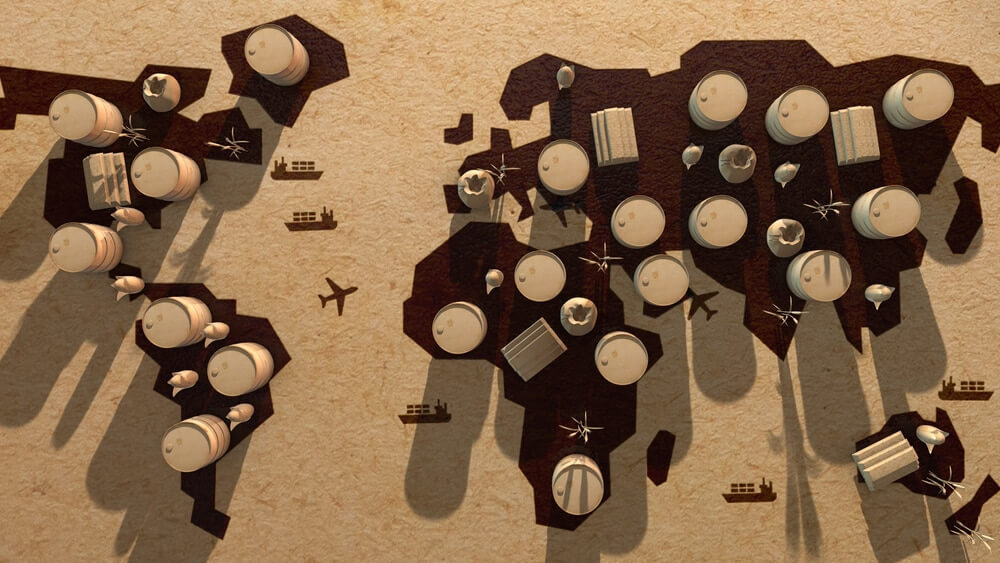
What sets commodity prices
The factors that affect commodity prices world-over are manifold. This goes for all markets, in many situations. Much like any asset, the basic underlying driver of all prices is demand and supply. However, just because we can boil it down to these two factors doesn’t make it simple. These two factors themselves are driven from multiple directions. Therefore, in this article, we shall guide you on several important contributors to the price of commodities.
The market’s effect on commodity prices
First of all, we should keep in mind how markets work in the modern day. In the past, most markets were disconnected. At the very least, there was a delay of information between any particularly large market. This meant that prices would move in every market according to local supply and demand. Merchants could buy from one market, move to another, and hope to make a profit there. This is because there was bound to be a different price for their commodities there. Time went on and markets worldwide had more and more connections. Eventually, we ended up in the situation we are in today. Almost all markets have the same, or extremely similar prices, for all commodities. Thanks to the miracle of the internet, one market can easily inform others of their commodities’ assets. Additionally, transferring commodities is easier than ever. As we said, in the past, merchants would move their assets themselves over large distances, by foot, and by boat. This would have taken a very long time, and with it, a lot of risk. People paying for their goods in other markets would thus also be paying for their transport costs. Now, though, transporting goods is a lot easier. It is much faster, and no-one puts their life in danger. What’s more, there’s basically a guarantee that the items will reach the destination. So prices are generally more regular. This is also part of the reason future contracts are so common today. People know they will receive what they paid for.

General factors
Now that we have that out of the way, let’s talk about the general factors. Some economies value commodities they do not have or want more of. The price of those commodities that people want more of will go up. Quite simple. The less they value that commodity, the more the commodity prices go down. This demand is from companies that need these raw materials for their services. Usually, this is in processing it into other goods. If they find that they find another commodity, which gets the job done more efficiently for them, its price will go up with demand. The ultimate source of cash is the public. They drive the strategies of companies and determine where the money comes from. So, ultimately, it all comes down to the public’s needs and desires. For example, during the coronavirus crisis, demand for oil was much, much lower, as people were not driving. This had a knock-on effect of crashing oil prices, being negative in some places.
The overall state of economies is also worth keeping in mind. If an economy is doing poorly, people have less spending money and will save more. This can have a negative effect on countless products, and, therefore, the demand for those products.
This isn’t the entire picture, however. Just as important is the supply. If a product is in high supply, prices will be lower. This is because the suppliers have more leverage with their product, so can demand higher prices. This is also why the price for commodities like crude oil isn’t quite as high as you would expect. Currently, oil is in high abundance, so the prices for it are accordingly low.
Commodity price manipulation
However, companies can also artificially affect commodity prices. They can artificially restrict the supply of a commodity, drive its price way up. This is especially true of industries where a company has a monopoly, or if all the companies are in an agreement.
The opposite direction is also possible. For example, Rockefeller, the oil tycoon, made handy use of a strategy to win out against the competition. For a while, he offered oil prices that were far lower than what everyone else was offering. By doing this, he was able to starve them out, as no other companies could survive with such an income. Afterwards, when he absorbed most other oil companies, oil prices started to climb back up again.
-
Support
-
Platform
-
Spread
-
Trading Instrument




